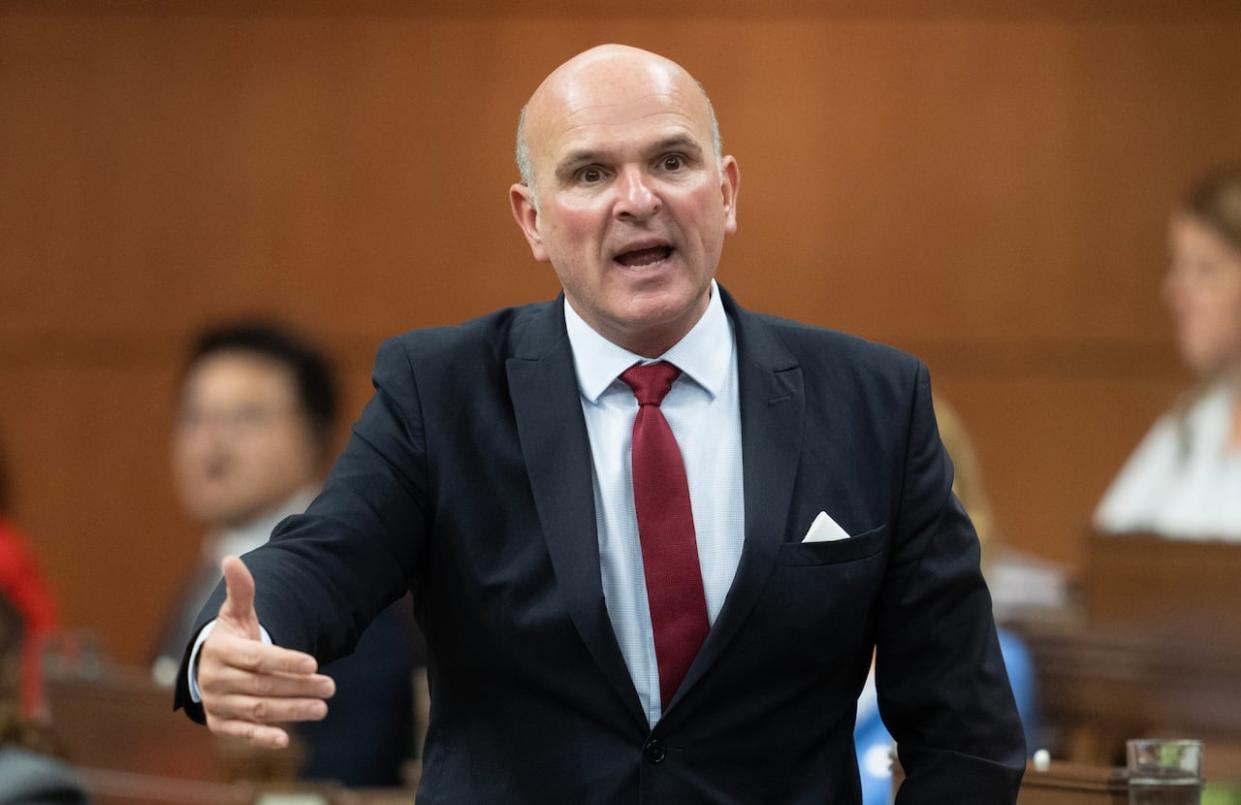Federal minister accuses some premiers of holding Canada back

Randy Boissonnault, the federal minister of employment and official languages, is accusing certain provincial premiers of standing in the way of Canada's "ambition."
"We have a lot of ambition as a country and yet we've got provincial premiers that are kind of stuck in the past and don't want to see us build, don't want to see us grow," he told host Catherine Cullen in an interview on CBC Radio's The House.
"There are great things that we can do with this country if we had provincial partners wanting to work with us."
Boissonnault pointed specifically to Alberta Premier Danielle Smith, Saskatchewan Premier Scott Moe and New Brunswick Premier Blaine Higgs. All three have said in recent weeks they will defy, or have considered defying, federal environmental regulations.
But Boissionnault's concerns went beyond his government's environmental policies. He also attacked new rules in Saskatchewan and New Brunswick that require parental consent for a student under 16 to have their name or pronoun changed in school.
"You've got provincial premiers going after or bullying minorities, instead of working with us through policy issues," he said. "This is not a way to build a country. And we have great ambition as a federal government. We want to get things done."
Carbon tax conflict
On Thursday, Moe said he would be moving forward with plans to direct SaskEnergy — the provincial Crown corporation responsible for natural gas distribution — to stop collecting the carbon tax on natural gas.
Higgs also has said he's looking at blocking the carbon tax in his province. Earlier this month, he said he wasn't "optimistic" that he had the legal ground to do so.
Moe, Higgs and other premiers have said a recently announced carbon tax exemption for heating oil is unfair to those who use other fossil fuels to heat their homes.
On Monday, Smith invoked her province's Sovereignty Act by introducing a resolution to push back against Ottawa's plan to green the electric grid by 2035.
Smith has argued that the 2035 target is impossible for her province to meet and has accused the federal government of refusing to work with her on what she sees as a more reasonable goal.
"Why don't we just work together on a 2050 target?" she asked during her announcement on Monday.

Premier Danielle Smith speaks to reporters in Edmonton about using the Sovereignty Within a United Canada Act for the first time. (Manuel Carrillos Avalos/Radio Canada)
Boissonnault, who represents an Alberta riding, called the Sovereignty Act a "distraction."
"It's a toothless tiger. Some might call it a dubious piece of legislation. I think it's a big distraction," he said.
Despite his concerns, Boissonnault maintained that he has good relations with all the premiers. He pointed to the health care funding agreement the federal government reached with the provinces and territories earlier this year as an example of how Ottawa and the premiers have worked together.
Boissonnault said any attempts to evade federal laws and regulations will ultimately end up before the courts.
"It's a country of the rule of law and if a particular provincial government doesn't want to respect the law, then we have courts to iron that out," he said.


